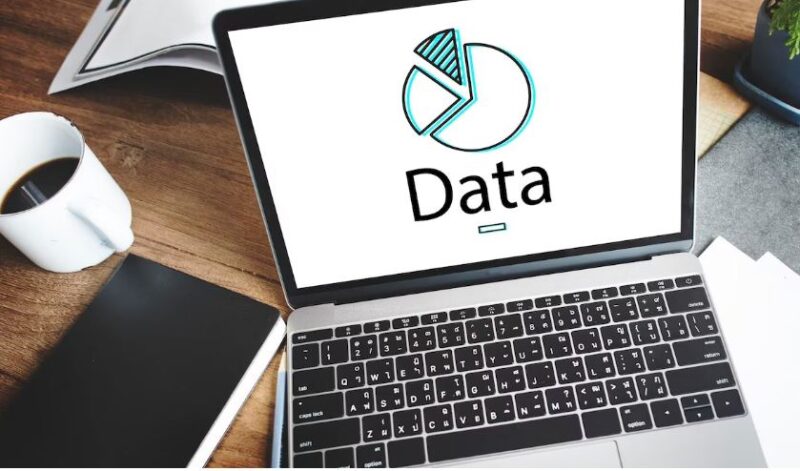In today’s digital world, data is an essential tool for businesses large and small. Having relevant and useful data can help you make informed decisions in business, understand customer behavior and anticipate future trends. So, we will look at what data is, how it can help your business and why you should hire a consulting firm for data literacy in your business. Moreover, we will look at the different kinds of data, common data analysis mistakes in companies and where to store data. By the end of this guide, you will understand why data is important for your business and how to use it. This information leads to more informed decisions about where to invest time and money.”Moreover, analysis like data commercialisation determines potential income revenue based on data gathered in past campaigns.
What is Data?
Data is information that has been collected from observations, surveys, and different kinds of measurements, and it is usually displayed in the form of numbers or graphs to gain insights into specific topics. Essentially, it is characters or other information that can be used to identify patterns, draw conclusions and make predictions. Having access to accurate data is very important for businesses, and it can help them make better decisions.
Useful and relevant data will help businesses improve their products and services, understand their customers better, and make more efficient use of their resources. What’s more, data comes from a variety of sources, such as customer surveys, financial records, sales numbers, website analytics, and social media.
Once a business’ data is collected and analyzed properly, it can give the company a competitive edge by helping it understand better its customers and the marketplace.
How Understanding Data Can Help Your Business
Data will help your business monitor its sales and growth, understand what customers are saying about your brand and products, and make better decisions about where to allocate resources. Let’s look at these benefits in more detail.
When you track website traffic, sales figures, customer satisfaction levels, and more, this smart use of data. The information you glean can be very valuable in helping you understand how your business is performing and identifying areas that need to be improved.
Social media platforms like Twitter and Facebook are full of useful data that can be analyzed to understand what customers think of your products or services. By reading social media comments about your company, you can explore customer feelings and take steps to improve the overall customer experience.
Finally, data can be helpful in making decisions about where to allocate funding and staff within your organization. You can use data to see which areas of your business are performing well and which could use revamping. This information leads to more informed decisions about where to invest time and money.
Hire a Data Literacy Consultant
As you can see, relevant and useful data can help your business grow. However, it can be hard to know where to begin when it comes to improving data literacy in a company.
This is where the external experts come in. By hiring a data literacy consulting firm, your business can improve its collection and use of data and benefit from this increased knowledge and awareness. With better data literacy comes more streamlined processes and better business solutions.
Qualitative and Quantitative Data
It is important that companies are well-equipped to analyze both qualitative and quantitative data or in simple terms, words, and numbers.
Qualitative data, which is expressed in words, is data that can be collected through interviews, focus groups, or surveys. This data comes in the form of opinions, testimonies, and other non-numerical input and is often used to understand customer preferences.
Quantitative data, on the other hand, is numbers and figures. This data can be collected through sales figures, financial reports, or website analytics, for instance. This type of data is often used to track progress or performance in a business.
Common Data Analysis Mistakes
There are a number of common data analysis mistakes that can lead to inaccurate results and poor business decisions. One of the most common mistakes is not collecting enough data. When analyzing data, more is always better. Companies need enough information to detect patterns and trends, and without enough data, your analysis is likely to be less reliable.
Moreover, businesses should avoid relying on old data. Data can quickly become outdated, so you need to make sure you are using the most up-to-date information available for your analysis.
Lastly, you need to ensure that you are not ignoring contextually important information. Data needs to be interpreted in the context in which it was recorded in order to be meaningful. Make sure you consider all relevant information when analyzing data so that you do not make any incorrect assumptions.
For instance, do not assume that de-icing spray is your most profitable product just because in the last quarter it was your best-selling item. In context, it was your best-selling item during the winter months, but based on the annual data, it is predicted to become one of your least-selling items in the coming months.
Where to Store Data
Depending on the size of your business, you may want to consider investing in an off-site storage solution, like a cloud-based system. Storing data on the cloud can be particularly helpful if you have a lot of data that needs to be backed up on a regular basis. This option is cost-effective, scalable, secure, and accessible.
Another option for storing data is to use an on-site server. This is a great option for businesses with a limited amount of data to store, or who need to keep their information securely on-site. However, remember that on-site servers require more maintenance than off-site solutions, so you will need to factor this into your decision.
In conclusion, data is essential for any business to become successful and remain competitive. When used effectively, it can help you understand your customers better, identify areas that need to be improved and make more informed decisions. With the right tools and strategies in place, businesses can use data to their advantage and stay ahead of the competition. It is important that businesses invest in improved data literacy. A consulting firm that specializes in data literacy can help your business grow and stay on top of the latest technology when it comes to data analysis.










